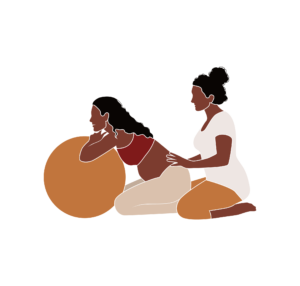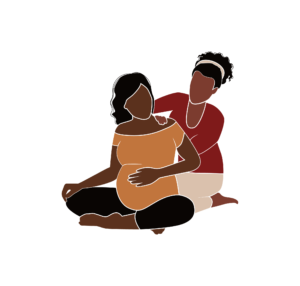How doulas and midwives differ

Every pregnant person’s birthing journey needs and preferences are different. That’s why it’s important to make a plan for who you want to include on your support team.
As you consider your options, you may wonder about the differences between doulas and midwives. Here are some key facts about both.
What is a doula?
A doula is a trained professional who provides you with emotional, physical, and informational support before, during, and after your pregnancy and childbirth.
What services do doulas provide?
A doula will typically help you prepare for the baby’s arrival by teaching you relaxation and breathing skills. They will make sure you understand the labor and delivery process, as well as help you develop a birth plan.

Doulas are not licensed to deliver babies or prescribe medication, but they can provide you with nonclinical support during labor and delivery. A doula will stay with you to keep you as comfortable as possible with positional changes, as well as massage and touch techniques for relaxation and rest. The doula will also provide you with education and resources to help you advocate for your health care preferences to your medical team.
After delivery and during the postpartum period, doulas can help you navigate the “fourth trimester” by providing support and encouragement to you and your new family. If you’ll be breastfeeding, they can also share their knowledge on the topic and refer you to lactation professionals.
What is a midwife?
A midwife is a licensed health care professional who helps you during labor, delivery, and after birth.
What services do midwives provide?

A midwife is there to support your physical and psychological health. They can provide advice on diet, exercise, and medications. A midwife can also perform prenatal exams, order tests, and prescribe medication.
A midwife can deliver your baby at home, a birthing center, or hospital. During labor, a midwife will typically provide you with emotional support as well. You might consider working with a midwife if a doctor has determined your pregnancy is low risk and you’d prefer limited medical intervention during childbirth.
When should you have an OB/GYN?
A midwife will typically recommend you see an OB/GYN if your pregnancy is considered high-risk or if you are expecting multiple babies. If your childbirth support team includes a doula but not a midwife, you’ll need to have an OB/GYN deliver your baby since doulas aren’t licensed to do so.
For help finding an in-network midwife or OB/GYN, search CDPHP Find-A-Doc.
Find support
CDPHP® is here to support our members who are expecting, whether you plan to become a first-time parent or already have children. Expecting members have access to CDPHP benefits and resources to support them on their pregnancy journey, such as coverage for prenatal and postpartum appointments with both a midwife and OB/GYN provider.
CDPHP offers eligible members reimbursement up to $1,500 for out-of-pocket costs related to in-person or virtual services provided by a certified and/or trained doula.*
Starting April 1, 2025, CDPHP will cover doula services provided by an in-network doula during pregnancy and up to 12 months after the end of pregnancy for Medicaid and Essential Plan members.
The following doulas are in-network for Medicaid and Essential Plan members. If you need additional help finding a doula, contact a member of the CDPHP Care Team at 1-888-942-3747.
| Name | Phone Number | |
|---|---|---|
| Erin Greene | erinsgreens.ny@gmail.com | 607-349-3239 |
| Katrina Dennis | dennis@loveinactiondoulaservicesllc.com | 845-392-4461 |
| Lisa Cartier | wihny@yahoo.com | 518-307-9810 |
| Monica Stafford | jamillah.love@gmail.com | 808-724-4496 |
| Victoria Bloom | wholeselfdoula@gmail.com | 914-450-9574 |
| Charline Ogbeni | admin@somiclients.com | 347-692-0488 |
| Renica Anglade | allbirthcoaching@outlook.com | 508-859-0443 |
| Jamie Daniels Bogert | jamie@themagicofbirth.com | 929-213-5866 |
| Janine Flores | doulamaternal@gmail.com | 862-782-5355 |
| Lawren Masters (Capital Region Birth and Baby) | lawren@birthandbaby.org | 518-903-1204 |
| Sherisa Moore (A Little Bit of Milk) | alittlebitofmilkllc@gmail.com | 518-291-0542 |
| Michaela Handy (Sweet Sage Birth Services) | sweetsagebirthservices@gmail.com | 315-219-1510 |
| Kenyatta Dominique (Genesis & Co.) | thegenesisdoula@gmail.com | 518-805-8081 |
This list is subject to change.
 The Daily Dose
The Daily Dose
Comments are closed.